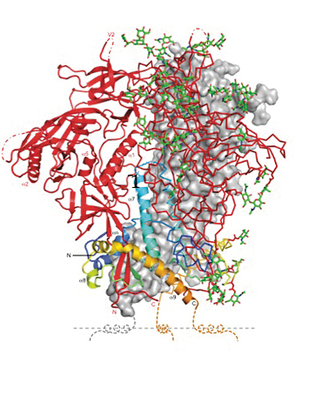 loading
loading
FindingsNoted Peter KwongView full imageThe Human Immunodeficiency Virus that causes AIDS is nightmarishly difficult for the immune system to detect and attack. But Walther Mothes, associate professor of microbial pathogenesis at the School of Medicine, and other researchers have developed techniques that let them watch how HIV evades immune detection. The research, presented in October in Science and Nature, describes the inner workings of the “spike proteins” that the virus uses to infect cells—a discovery that may lead to an effective vaccine.
Last summer, Yale historian Beverly Gage, at work on a biography of FBI director J. Edgar Hoover, was in the National Archives combing through a newly available reprocessed file of Hoover’s. In it, she found the full text of the notorious “suicide letter” that someone in the Bureau had sent anonymously to Martin Luther King Jr. in late 1964. The only previously known copies are substantially redacted. The letter details King’s extramarital affairs, threatens to make them public, and says King should do “the one thing left for you to do. You know what it is.”
Many people, across cultures, respond to joy by crying. In work slated to appear in Psychological Science, psychology postdoc Oriana Aragón ’14PhD tried to find out why people respond to positive emotions with expressions that look like sadness, aggression, or fear. She and her colleagues found that adult volunteers looking at pictures of cute babies expressed positive emotions, along with playful aggression, and that crying can be a way to restore emotional balance.
The comment period has expired.
|
|